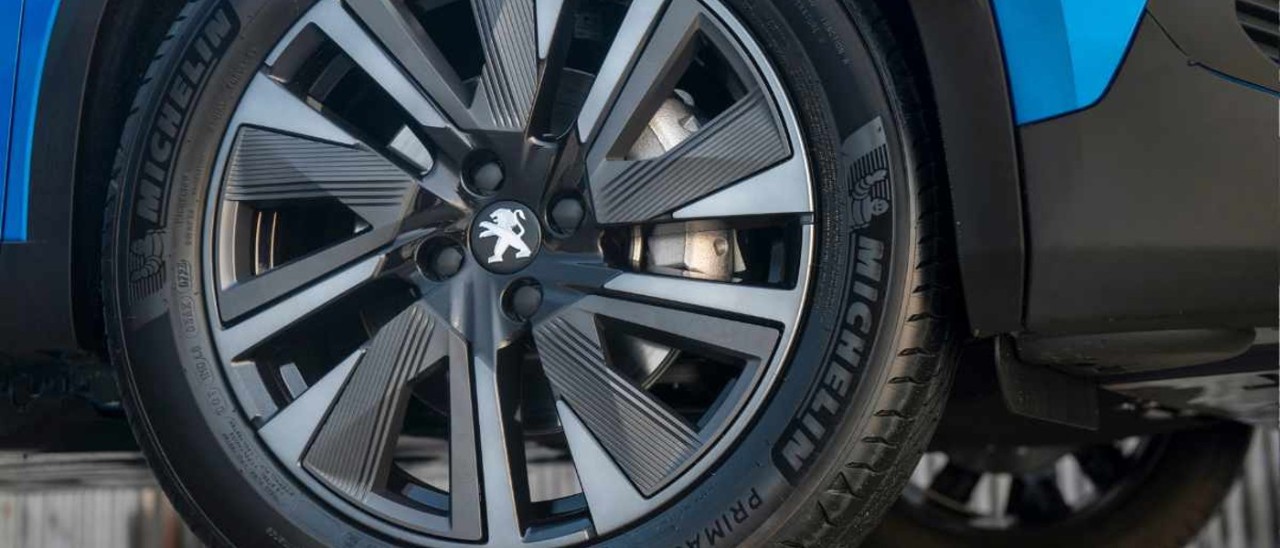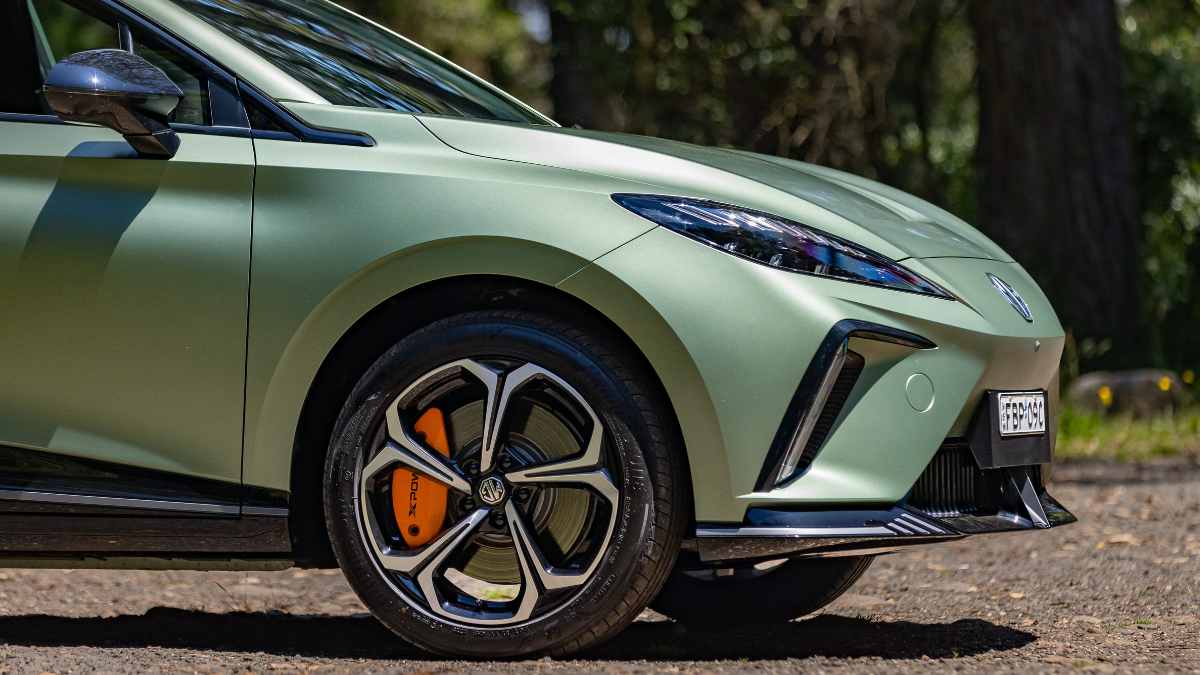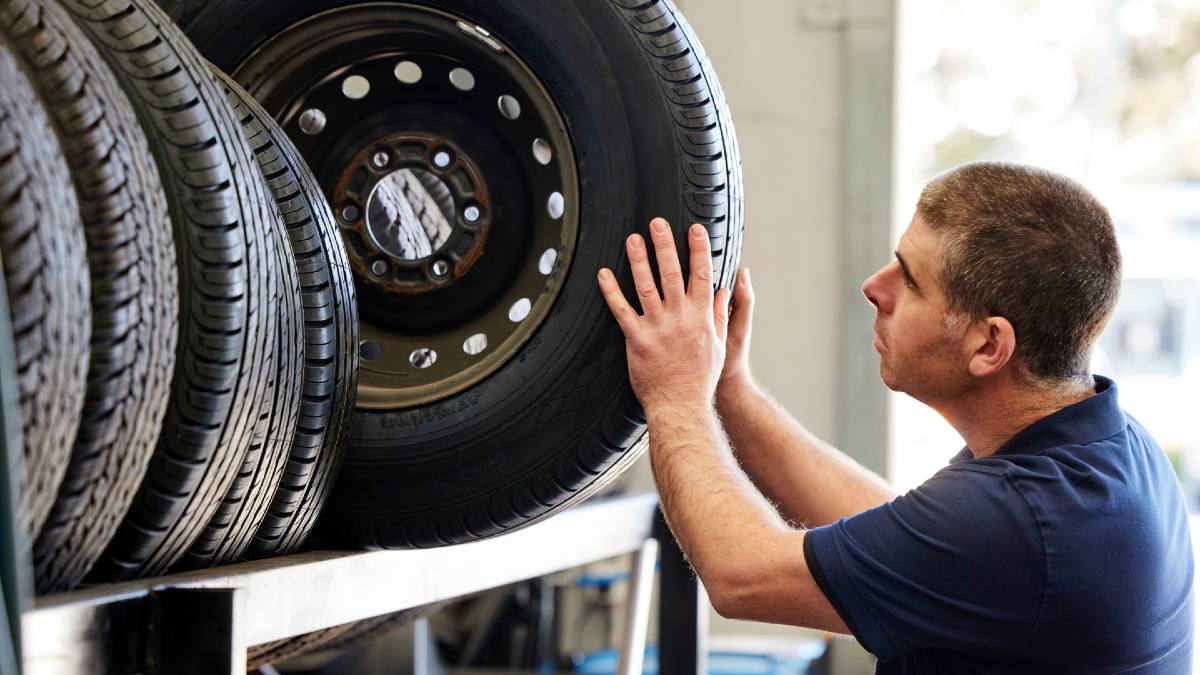The first battery-electric Toyota HiLux is set to arrive in Australia in 2026. The HiLux EV offers the same off-road capability and 3500kg towing capacity as the rest of the diesel-powered range, but with a driving range of 350km NEDC, may have limited appeal outside of specific fleet usage.
The best tyres for electric cars (and what makes EV tyres different)

Learn about how and why EV tyres are different from regular tyres, plus the best types of tyres for electric cars.
Did you know that electric vehicle (EV) tyres are different from internal combustion engine (ICE) vehicle tyres? It’s important to understand how EV tyres are engineered and rated when it comes time to buying new tyres. Read on to discover what you need to know about electric car tyres.
What you need to know about electric car tyres
Why do EVs use different tyres?
Weight
Car tyres must support the vehicle load (weight), absorb force when brakes are applied, and deliver power from the drivetrain to the road during acceleration. EVs are generally heavier than traditional cars because of their large batteries. Their electric motor also provides instant torque, deploying power immediately when you depress the accelerator. As a result, weight transfers are heavier and more intense than ICE vehicles. EV tyres therefore need to be stronger to carry the extra load and deal with the greater forces.
Noise
Electric car tyres are almost silent since they don’t have combustion engines. That makes the dull roar of tyres on the road much more noticeable in an EV cabin. EV tyre manufacturers have reduced this noise as much as possible by using different rubber compounds and tread designs.
Range
EV tyres are ‘low rolling resistance’, which can improve EV range. Low rolling resistance tyres minimise energy loss between the energy given to the tyres and the energy they give back as movement. In essence, EV tyres roll better than traditional tyres to optimise energy. The less energy lost, the more energy is spared for further range.

Electric car tyres differ substantially from traditional tyresfor petrol or diesel cars
How much do EV tyres cost?
EV tyres generally cost more than regular tyres because there are fewer overall sales and greater research and development costs. As EVs become more popular and tyre technology improves, it’s likely that EV tyres costs will decrease.
More: Australia's cheapest electric cars to buy
How long do EV tyres last? Do EVs cause more wear and tear to tyres?
EVs can cause more wear and tear to traditional tyres due to their greater weight and increased torque. EV tyres adjust for this difference. EV tyre lifespans should be between 25,000-40,000km, depending on the tyre size.
Your tyres can wear out faster or slower depending on:
- Your driving style - harsh acceleration and braking wears out tyres faster
- Maintenance - regular tyre rotation and correct inflation pressure will keep tyres healthier for longer
- Driving conditions - rough terrain and extreme temperatures can negatively affect tyres.
More: Australia's best electric cars to buy
How do I maximise my EV tyre lifespan?
A moderate driving style and regular tyre maintenance can maximise the lifespan of EV tyres.
Driving moderately can reduce energy consumption to increase driving range and optimise tyre quality. Moderate acceleration, careful cornering and regenerative braking can all help.
Tyre maintenance should include tyre rotations during your services, and regular wheel alignment checks and adjustments, with potholes being a common driving hazard that puts the alignment out. Poor alignment can be the biggest cause of premature tyre wear.
As EVs have longer service intervals, you could be visiting your mechanic less frequently, so keeping your own eye on tyre wear is critical, including checking the inside edge of the tyre which will often wear out more quickly if alignment is out. If in doubt, seek professional advice – it could save you hundreds of dollars.
You should also regularly check your tyre pressure at your local fuel station. Remember to adapt your tyre pressure depending on the load it’s carrying. You can check which pressure is correct by looking at the manufacturer sticker, often located inside the driver door or charging socket.
If you notice your EV tyres have punctures, cracks, uneven wear or bulges in the side wall, they may need repairing or replacing. Tyres more than five years old or with a tread depth below 1.6mm also need replacing.
Check whether your EV carries a spare tyre and if not, what solution the manufacturer has provided. Most EVs will not carry a spare and few are fitted with run-flat tyres, therefore it's important that you understand if you've been provided with a space saver or (more commonly) a tyre inflator kit, and that you understand how to use such devices in an emergency.

Your mechanic should regularly check your EV tyres for wear and damage
Can EVs use regular tyres?
EVs can technically use traditional tyres if they match the manufacturer’s recommended weight load and speed rating. However, the result is that the tyres wear out faster, and have decreased performance. It’s best to use EV-specific tyres. There could also be a significant impact on the noise and on-road feel if you use a tyre that isn't designed to produce very low or no noise at high speeds.


